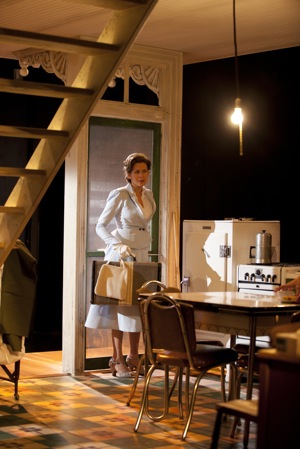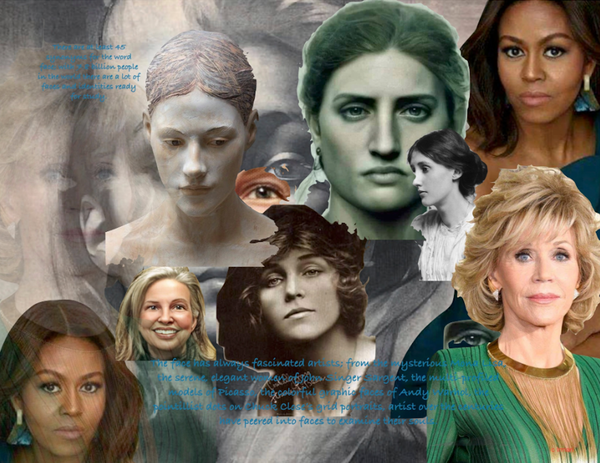A Streetcar Named Desire—the Pulitzer Prize winning 1947 Tennessee Williams play that became the classic 1951 movie with Marlon Brando and Vivian Leigh—dates back to the era when some films were made in Technicolor and others in black-and-white. Two summer's ago, Barrington Stage offered us an extraordinary, traditional full-color production. Now, Williamstown Theatre Festival is offering us a darker, edgier version that feels like it's made in black-and-white, which means, of course, that it's dense with shades of gray.

Indeed, director David Cromer has taken a cinéma vérité approach; if this were to be made into a film, it would be shot with a hand-held camera. The audience sits on two sides of a set that seems to have been created so that sight-lines are deliberately obscured at various moments for every ticket-holder. "I think we are supposed to feel like voyeurs, like neighbors who don't see everything," suggested the woman sitting next to me. "It feels like real life." One scene is illuminated by a single flickering candle so that you really do feel you are eavesdropping on an intimate conversation. This is a naturalistic Streetcar that has none of the flourishes cherished (and mimicked) by generations of drama queens. As the working-class "Polack" Stanley Kowalski, Sam Rockwell is not the iconographic beefcake brute; he's sexy in an unselfconscious way and so tightly wound that you feel the necessity of his explosive outbursts. As for Jessica Hecht's fragile Blanche DuBois, she's the southern belle sister-in-law who's straining to hold onto a vision of her former self that we never really get to see. It's clear she's mentally unhinged from the moment she steps onto the stage, and the play's tension comes from our wondering whether she'll merely crack or if she'll completely shatter. And Ana Reeder's Stella Kowalksi is a formidable center of gravity, a woman valiantly trying to honor and love both her husband and her sister; but as the claustrophobic set makes clear, there is no room in her home for both of them, which is heartbreaking. "I don't want realism. I want magic!" Blanche says in the third act. "I don't tell truths. I tell what ought to be truth." David Cromer has contradicted his tragic heroine. He has given us a haunting, bare-knuckled Streetcar without gloss, pretense or melodrama. It's Tennessee Williams re-tooled for the 21st century. A Streetcar Named Desire at Williamstown Theatre Festival Williamstown, MA Through July 3, 2011






